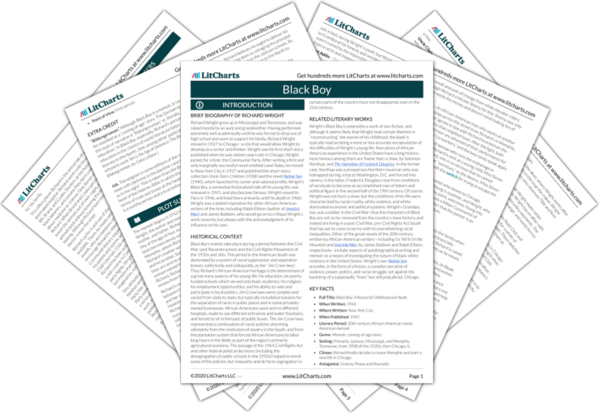This is another important moment in Wright’s artistic career. He moves from a kind of journalism, or reporting, to the making of fiction. In
Black Boy, Wright is committed to talking about the life he has lived, but in his other works, like
Native Son, fiction becomes the basis of the creative act. In both cases, however, real life and real social problems are the foundations of the writing.
